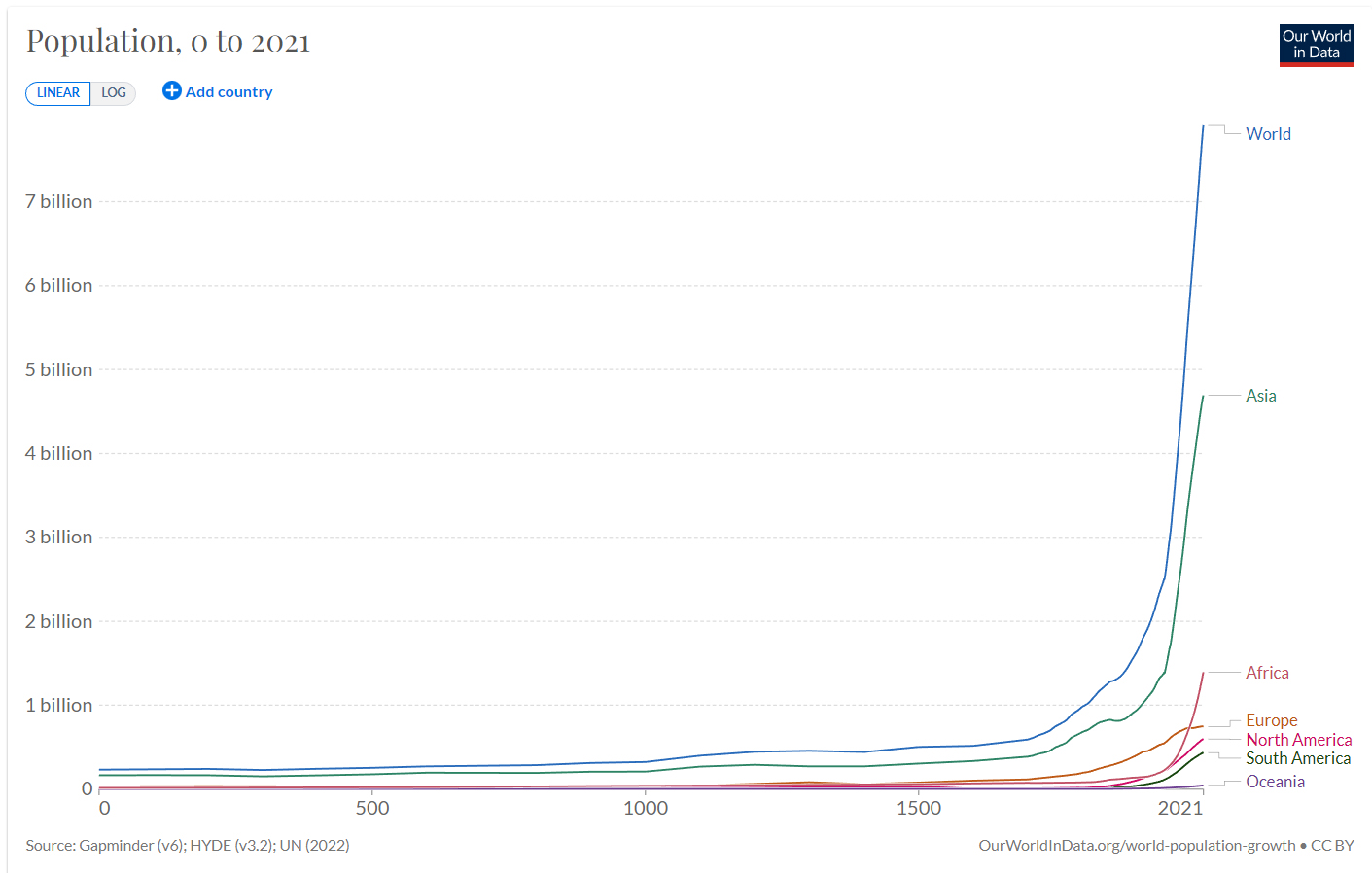Earth passes 8 billion concurrent users to set new record
Hope the servers can handle it.

Earth broke its own concurrent user record today with a peak of 8 billion human users, according to a UN Report (via NPR). That figure blows away Earth's last concurrent user milestone of 7 billion human users back in October of 2011, and is double the amount recorded in 1974.
That's right, despite the planet's last few unpopular patches (COVID, global warming, murder hornets) and a persistent "Mixed" review score, Earth continues to grow in popularity among humans who are born and exist there more than on any other celestial object in the known universe. So far, Earth's servers are holding up to the strain, though there do seem to be a few recent obvious glitches like increased UFO sightings and the inexplicable popularity of Pete Davidson.
Not everyone is excited about the milestone: Some claim Earth has an unfair monopoly on human life, especially compared with other planets in our solar system. Mars, for example, has so far failed to attract even a single user after multiple delays pushed back colonization until an estimated 2033. The Moon, meanwhile, drew only a dozen users back in the '60s and early '70s but none since due to reduced interest and extreme hardware costs.
Currently, there are also 10 people in outer space, but a lack of a season pass (there are no seasons) or major features (air, water, stuff to stand on) discourages most from giving it a try.
On average most users logged out after only about 30 years.
The acceptance of Earth as a client for humans was slow going for a while. Despite being formed for 4.5 billion years, the first human user logged in only 2 million years ago. The population wouldn't reach a paltry 4 million until about 10,000 BCE, and on average most users logged out after only about 30 years. There were some big setbacks along the way, like the Black Plague update in the 1300s which resulted in a big dropoff of users, but other features like the New World expansion in the 16th century saw the planet's overall userbase continue to rise.
It took all the way until 1804 for the Earth to break the 1 billion user mark, and since then the planet's CCU has been growing exponentially and users are staying logged in for much longer, an average of 73 years. Common complaints are the long-running money glitch that allows a very small percentage of users to grow richer despite contributing nothing meaningful to the planet, and while the level of simulation is impressive we're still waiting for the HD remake—no meaningful graphics upgrade has been released since the introduction of the eye.

The UN estimates that the growth of Earth's human userbase will slow considerably in the coming decades: The planet isn't expected to reach 9 billion users for another 15 years, with a peak CCU of 10.4 billion sometime in the 2080s, provided the whole damn thing doesn't completely fall apart by then.
Keep up to date with the most important stories and the best deals, as picked by the PC Gamer team.
We've reached out to Gaia, primordial deity of our planet, for comment on this milestone and will update if we receive a reply or premonition.

Chris started playing PC games in the 1980s, started writing about them in the early 2000s, and (finally) started getting paid to write about them in the late 2000s. Following a few years as a regular freelancer, PC Gamer hired him in 2014, probably so he'd stop emailing them asking for more work. Chris has a love-hate relationship with survival games and an unhealthy fascination with the inner lives of NPCs. He's also a fan of offbeat simulation games, mods, and ignoring storylines in RPGs so he can make up his own.

